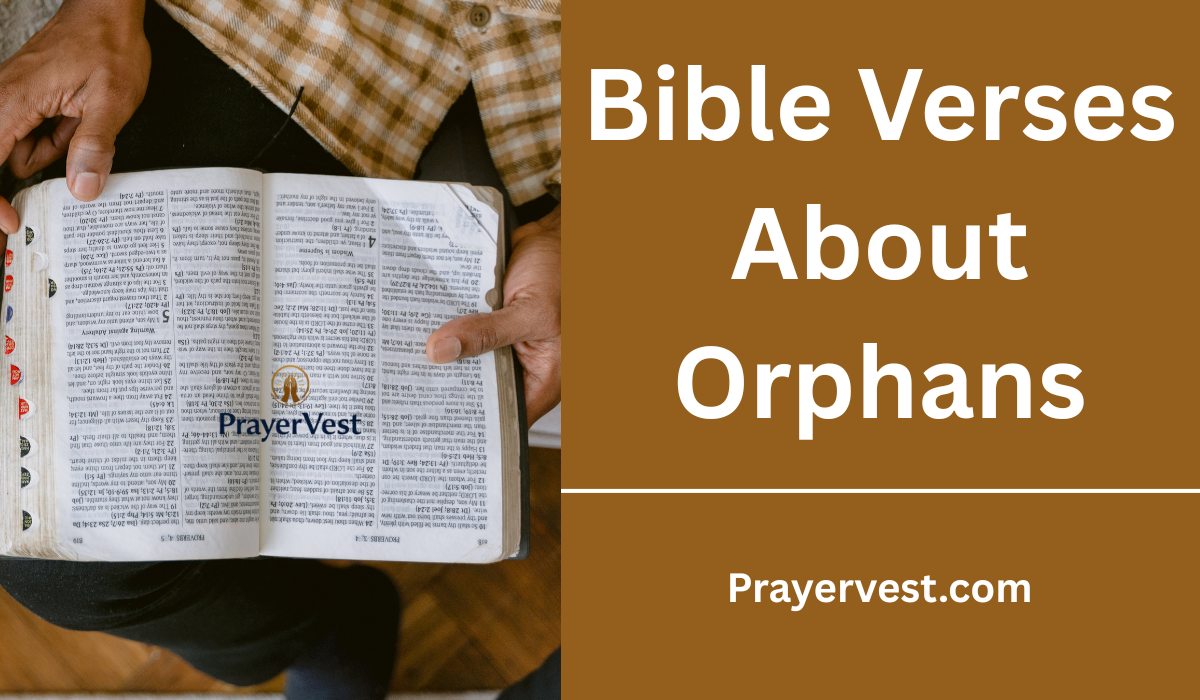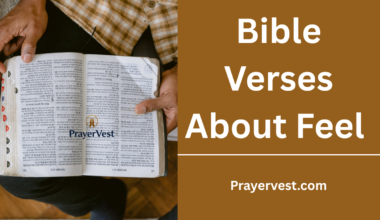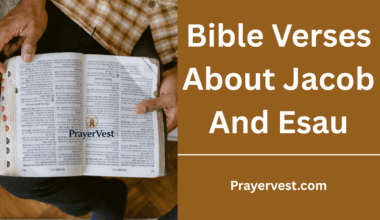Few groups more eloquently demonstrate God’s concern for the weak than orphans. This is evident throughout the Bible. Children without parents or guardians, or orphans, are a symbol of social and emotional need as well as physical vulnerability.
As a reflection of God’s own nature as a loving and just Father, the Scriptures frequently exhort Christians to take care of people in need. Caring for orphans is not optional but rather a crucial part of living authentically before God, as seen by the Old and New Testaments’ emphasis on justice, provision, and mercy.
The Bible recognizes both promise and fragility in the lives of orphans. God assures them of His protection, direction, and provision even though they could experience loss, desertion, or marginalization. He is a father to the fatherless, stepping in where human systems fail, as numerous scriptures emphasize.


This divine example gives believers a moral and spiritual obligation to support, care for, and defend people without earthly protectors. The call is more than just charity; it is a concrete example of living in accordance with God’s will and a reflection of His justice and love.
Examining Bible passages pertaining to orphans encourages us to consider our own hearts and communities. These verses make us think about how we react to suffering, injustice, and need in the world. They remind us that God cares about everyone, especially the weak, and they encourage both spiritual contemplation and practical action. We can learn more about God’s nature, the value He places on human life, and the transformational potential of compassionate action in a society that frequently ignores the most vulnerable by comprehending and putting these passages into practice.
40 Inspiring Bible Verses About Orphans (2026)
1. Psalm 68:5
“A father to the fatherless, a defender of widows, is God in his holy dwelling.”
This verse emphasizes God’s protective nature over the most vulnerable in society. The imagery of God as a father to the fatherless reassures us that He provides guidance, shelter, and care for those without earthly guardians. It teaches that divine compassion is active and personal, not abstract, and that God Himself intervenes on behalf of the marginalized.
2. James 1:27
“Religion that God our Father accepts as pure and faultless is this: to look after orphans and widows in their distress…”
Here, caring for orphans is framed as a tangible expression of true faith. The verse links spiritual devotion to practical action, reminding us that God’s standards of righteousness extend beyond rituals into how we treat society’s defenseless members.
3. Isaiah 1:17
“Learn to do right; seek justice. Defend the oppressed. Take up the cause of the fatherless; plead the case of the widow.”
Isaiah calls believers to social justice as a spiritual mandate. The fatherless are highlighted as a group whose needs exemplify the urgency of justice. This verse conveys that caring for orphans is not optional—it is a moral responsibility rooted in God’s law.
4. Deuteronomy 10:18
“He defends the cause of the fatherless and the widow, and loves the foreigner residing among you, giving them food and clothing.”
God’s justice is holistic, encompassing both orphans and other vulnerable groups. This verse illustrates that His concern extends beyond personal interest—His actions are rooted in love, provision, and equality.
5. Psalm 146:9
“The Lord watches over the foreigner and sustains the fatherless and the widow, but he frustrates the ways of the wicked.”
This verse highlights God’s protective oversight. His care for orphans is active and continuous, emphasizing that the divine gaze is always on those without human guardians, ensuring justice and sustenance in their lives.
6. Psalm 10:14
“But you, God, see the trouble of the afflicted; you consider their grief and take it in hand. The victims commit themselves to you; you are the helper of the fatherless.”
This verse reminds us that God is intimately aware of the suffering of orphans and the oppressed. Their pain is not hidden from His eyes, and His intervention is both personal and compassionate. It encourages believers to trust in God’s timing and justice, knowing that He actively works to defend and uplift those without earthly protection. The fatherless are invited into a relationship with a God who not only sees their plight but responds with power and mercy.
7. Psalm 68:6
“God sets the lonely in families, he leads out the prisoners with singing; but the rebellious live in a sun-scorched land.”
God’s transformative love brings orphans and the isolated into new communities and families. This verse underscores His restorative power, turning isolation into belonging and sorrow into joy. It portrays a God who actively reconstructs lives, creating support, care, and belonging where there was once emptiness. For believers, it emphasizes the responsibility to mirror God’s heart by helping integrate the fatherless into nurturing environments.
8. Jeremiah 49:11
“Leave your fatherless children; I will keep them alive. Your widows and orphans will find refuge in me.”
Here, God assures divine protection for the most vulnerable, showing that human abandonment is met with divine care. Orphans are not left to fend for themselves; they are enveloped in God’s providential care. This verse teaches that no one is truly forsaken, highlighting God’s sovereignty over the affairs of those society neglects. It encourages believers to place their trust in God’s protective presence.
9. Isaiah 54:14
“In righteousness you will be established: Tyranny will be far from you; you will have nothing to fear. Terror will be far removed; it will not come near you.”
Though not directly mentioning orphans, this verse speaks to the broader promise of security and protection for the vulnerable. God establishes His people in safety and righteousness, creating an environment where the weak, including orphans, can thrive without fear. It emphasizes the divine promise of stability, a foundational assurance for those left without earthly support.
10. Deuteronomy 14:29
“And the Levite, the foreigner, the fatherless and the widow who live in your towns may come and eat and be satisfied, so that the Lord your God may bless you in all the work of your hands.”
This verse links practical generosity to divine blessing. Providing for orphans is more than charity; it is obedience and a conduit of God’s favor. God structures society so that care for the fatherless is not incidental but integral to communal life. Believers are reminded that supporting the vulnerable nurtures both the recipient and the giver, reflecting God’s holistic approach to justice and provision.
11. Exodus 22:22
“Do not take advantage of the widow or the fatherless.”
God’s command is stark and unambiguous: exploitation of the defenseless is forbidden. This verse highlights the moral imperative to respect, protect, and honor orphans, framing their vulnerability as a sacred call to justice. God aligns righteousness with practical, everyday behavior toward the marginalized, emphasizing ethical responsibility in all human interactions.
12. Psalm 146:9
“The Lord watches over the foreigner and sustains the fatherless and the widow, but he frustrates the ways of the wicked.”
This verse juxtaposes divine care for the powerless with judgment for the wicked. God’s attentiveness to orphans illustrates His commitment to justice and equity. Believers are reminded that vulnerability does not equate to invisibility; God’s watchful presence ensures the weak are upheld while wrongdoers face accountability. It is a profound reassurance of God’s balance between mercy and justice.
13. Isaiah 1:23
“Your rulers are rebels, partners with thieves; they all love bribes and chase after gifts. They do not defend the cause of the fatherless; the widow’s case does not come before them.”
This verse underscores human failure contrasted with divine obligation. When leaders neglect the orphaned, corruption flourishes, highlighting the societal consequences of ignoring God’s commands. It serves as a reminder that true faith manifests in social responsibility and advocacy for the defenseless, calling believers to actively participate in righteous governance and care.
14. Jeremiah 22:3
“This is what the Lord says: Do what is just and right. Rescue from the hand of the oppressor the one who has been robbed. Do no wrong or violence to the foreigner, the fatherless or the widow, and do not shed innocent blood in this place.”
Justice is inseparable from compassion in God’s law. This verse lays out an actionable ethical framework: defending orphans is a central component of righteousness. It teaches that faith is measured not just by belief but by active protection of those most vulnerable to exploitation and harm.
15. Zechariah 7:10
“Do not oppress the widow or the fatherless, the foreigner or the poor. Do not plot evil against each other.”
God calls for systemic integrity, where societal harmony is grounded in protection for the marginalized. The fatherless are particularly emphasized, showing that justice requires deliberate and sustained action. Faithful living, therefore, encompasses active advocacy and prevention of harm to the weak.
16. Psalm 68:5-6
“A father to the fatherless, a defender of widows, is God in his holy dwelling. God sets the lonely in families.”
God’s heart is not only protective but restorative. He transforms the isolation of orphans into belonging, demonstrating His creativity and compassion in building families beyond biological ties. The verse calls believers to mirror this divine initiative, cultivating communities that offer care, mentorship, and inclusion.
17. Job 29:12-13
“Because I rescued the poor who cried for help, and the fatherless who had none to assist them. The blessing of the one about to perish came upon me, and I caused the widow’s heart to sing for joy.”
Job recounts a life of active advocacy and mercy, showing how protecting orphans brings joy and divine favor. This passage illustrates that caring for the defenseless has both spiritual and relational impact, bringing hope, relief, and dignity to those left vulnerable.
18. Proverbs 23:10-11
“Do not move an ancient boundary stone or encroach on the fields of the fatherless, for their Defender is strong; he will take up their case against you.”
The proverb emphasizes divine justice in practical matters of property and inheritance. God acts as the defender of orphans, guaranteeing that exploitation will not go unpunished. Believers are reminded that protecting orphans is both a moral duty and a spiritual safeguard.
19. Malachi 3:5
“So I will come to put you on trial. I will be quick to testify against sorcerers, adulterers and perjurers, against those who defraud laborers of their wages, who oppress the widows and the fatherless, and deprive the foreigners among you of justice, but do not fear me,” says the Lord Almighty.
This verse highlights God’s active judgment against those who harm the vulnerable. Orphans are under divine protection, and injustice toward them triggers God’s corrective action. It underscores that God’s commitment to justice is both ethical and judicial, emphasizing His role as protector and advocate.
20. Exodus 23:9
“Do not oppress a foreigner; you yourselves know how it feels to be foreigners, because you were foreigners in Egypt.”
Although broader in scope, this command parallels God’s call to protect orphans. By reminding Israel of their own vulnerability in Egypt, God cultivates empathy and justice. Caring for the defenseless is grounded in shared human experience and divine instruction, calling believers to act with compassion and fairness.
21. Deuteronomy 24:17
“Do not deprive the foreigner or the fatherless of justice, or take the cloak of the widow as a pledge.”
God’s law emphasizes fairness and protection for the most vulnerable. This verse highlights that justice must be impartial, extending to those who cannot defend themselves. It encourages believers to safeguard the rights and dignity of orphans and widows, reflecting God’s ethical standards in all interactions. Protecting the defenseless is not optional but a reflection of righteousness.
22. Psalm 146:7-9
“He upholds the cause of the oppressed and gives food to the hungry. The Lord sets prisoners free, the Lord gives sight to the blind, the Lord lifts up those who are bowed down, the Lord loves the righteous. The Lord watches over the foreigner and sustains the fatherless and the widow, but he frustrates the ways of the wicked.”
This psalm portrays God as actively engaged in restoring justice and caring for the powerless. Orphans are included in His tender oversight, demonstrating that God’s love and justice are inseparable. Believers are called to emulate this divine compassion, ensuring the fatherless are supported, protected, and included in community life.
23. Isaiah 49:15
“Can a mother forget the baby at her breast and have no compassion on the child she has borne? Though she may forget, I will not forget you!”
God compares His care for the fatherless to the most intimate human bond, emphasizing His unwavering commitment. Even if human love fails, God’s memory, concern, and protection for the vulnerable are constant. This verse offers profound reassurance to orphans: God’s care surpasses any human limitations.
24. Psalm 146:5
“Blessed are those whose help is the God of Jacob, whose hope is in the Lord their God.”
For orphans and the vulnerable, God is both refuge and hope. Trusting in Him provides stability, comfort, and a sense of belonging. This verse encourages believers to recognize that spiritual reliance on God is the foundation for enduring security and guidance in life, especially for those without earthly guardians.
25. Jeremiah 49:11
“Leave your fatherless children; I will keep them alive. Your widows and orphans will find refuge in me.”
This verse reassures that God’s protective hand is ever-present. Even when humans fail or abandon the vulnerable, God intervenes with provision, safety, and sustenance. It teaches that divine refuge is accessible to all who are defenseless, demonstrating God’s faithfulness and unwavering care.
26. Psalm 27:10
“Though my father and mother forsake me, the Lord will receive me.”
For orphans, this verse offers profound emotional reassurance: abandonment by humans does not mean abandonment by God. Divine acceptance and care provide identity, love, and protection, showing that God Himself becomes a spiritual parent. Believers are reminded that their ultimate security and belonging rest in Him.
27. Psalm 68:5
“A father to the fatherless, a defender of widows, is God in his holy dwelling.”
Reiterating God’s role as a protective parent, this verse emphasizes His advocacy and intimate involvement in the lives of the fatherless. Believers are inspired to mirror this divine care, acting as guardians, mentors, and supporters of those without familial protection.
28. Proverbs 31:8-9
“Speak up for those who cannot speak for themselves, for the rights of all who are destitute. Speak up and judge fairly; defend the rights of the poor and needy.”
Orphans are included among the voiceless and powerless whom God commands His people to defend. This verse frames advocacy as both moral duty and spiritual obedience, highlighting the importance of action, justice, and speaking for the defenseless in every aspect of life.
29. Isaiah 1:17
“Learn to do right; seek justice. Defend the oppressed. Take up the cause of the fatherless; plead the case of the widow.”
This verse calls for proactive righteousness, emphasizing that faithfulness is demonstrated through tangible care for those without protection. Orphans are not a peripheral concern but central to God’s vision for justice and equity. Believers are challenged to act boldly, ensuring the vulnerable are supported and heard.
30. Psalm 82:3
“Defend the weak and the fatherless; uphold the cause of the poor and the oppressed.”
God calls His people to partnership in justice. Orphans, as emblematic of the weak and defenseless, are central to His mandate. This verse teaches that active defense of the vulnerable is a spiritual responsibility, reflecting God’s character and promoting equity in society.
31. Jeremiah 5:28
“They do not speak the truth; they use their power to oppress. They do not defend the cause of the fatherless, the widow, or the alien.”
This verse serves as a warning against neglect and corruption. Society suffers when the vulnerable are ignored or exploited. Orphans are a litmus test for justice; believers are called to ensure that the powerless are not abandoned and that truth and fairness guide all actions.
32. Psalm 10:18
“He guards the strangers and upholds the fatherless and the oppressed, but the way of the wicked he brings to ruin.”
God’s justice and care are inseparable. Orphans are under His personal protection, and the wicked face accountability for exploitation. Believers are reminded that defending the defenseless aligns with divine justice and reflects God’s heart to the world.
33. Deuteronomy 14:29
“And the Levite, the foreigner, the fatherless, and the widow who live in your towns may come and eat and be satisfied.”
Provision and inclusion are central to God’s plan for orphans. Ensuring that the fatherless are fed and cared for embodies mercy, community, and divine blessing. Believers are called to create systems of care that sustain and empower those without families.
34. Zechariah 7:10
“Do not oppress the widow or the fatherless, the foreigner or the poor.”
Faith is inseparable from action. This verse reminds believers that justice is practical and relational: protection of orphans is a visible expression of spiritual obedience and moral integrity.
35. Psalm 68:6
“God sets the lonely in families, he leads out the prisoners with singing.”
God restores what is broken. Orphans are brought into new communities, experiencing belonging and care. Believers are called to participate in this restorative work, helping to create nurturing environments for the fatherless.
36. Job 29:12
“Because I rescued the poor who cried for help, and the fatherless who had none to assist them.”
Job exemplifies the active life of justice. Protecting orphans brings hope, relief, and dignity to those without defense. Believers are challenged to adopt this same proactive stance in their communities.
37. Proverbs 23:10
“Do not move an ancient boundary stone or encroach on the fields of the fatherless.”
Property rights and fairness are sacred, especially for orphans. God promises justice for those who cannot protect themselves, reminding believers that ethical responsibility extends to tangible protection of inheritance and livelihood.
38. Malachi 3:5
“I will come to put you on trial… against those who oppress the widows and the fatherless.”
God’s protective justice is active and judicial. Orphans are under divine care, and exploitation triggers correction. Believers are called to align their hearts and actions with God’s commitment to justice.
39. Exodus 22:22
“Do not take advantage of the widow or the fatherless.”
The directness of God’s command underscores moral clarity. Exploiting the defenseless is unequivocally forbidden, and believers are called to champion fairness, dignity, and care for those without familial protection.
40. Psalm 82:3-4
“Defend the weak and the fatherless; uphold the cause of the poor and oppressed. Rescue the weak and needy; deliver them from the hand of the wicked.”
This final verse reinforces the call to advocacy, protection, and justice. Orphans are emblematic of all vulnerable people, and believers are called to actively rescue, support, and defend them, embodying God’s heart for mercy, compassion, and righteousness.
Conclusion
God’s unwavering compassion for the weak and defenseless is brought to light when we consider the Bible’s teachings regarding orphans. Scripture makes it clear again and again that He is a defender, provider, and advocate for people without parents, setting an example of righteous and compassionate love. These verses exhort us as Christians to emulate God’s heart by providing orphans in our communities with support, care, and advocacy. Every deed of compassion and every endeavor to support the fatherless reflects divine justice and illuminates the lives of those who most need God’s love.
These verses also encourage us to consider our own emotions and obligations. Taking care of orphans is a spiritual practice that shows faith in action, not just a good deed. We take part in God’s redemptive work on earth by accepting His call to defend, care for, and support the fatherless. In the end, the Bible encourages us to act with compassion, bravery, and unshakable faith by reassuring us that no orphan is forgotten and that God’s supply and presence are continuous.






